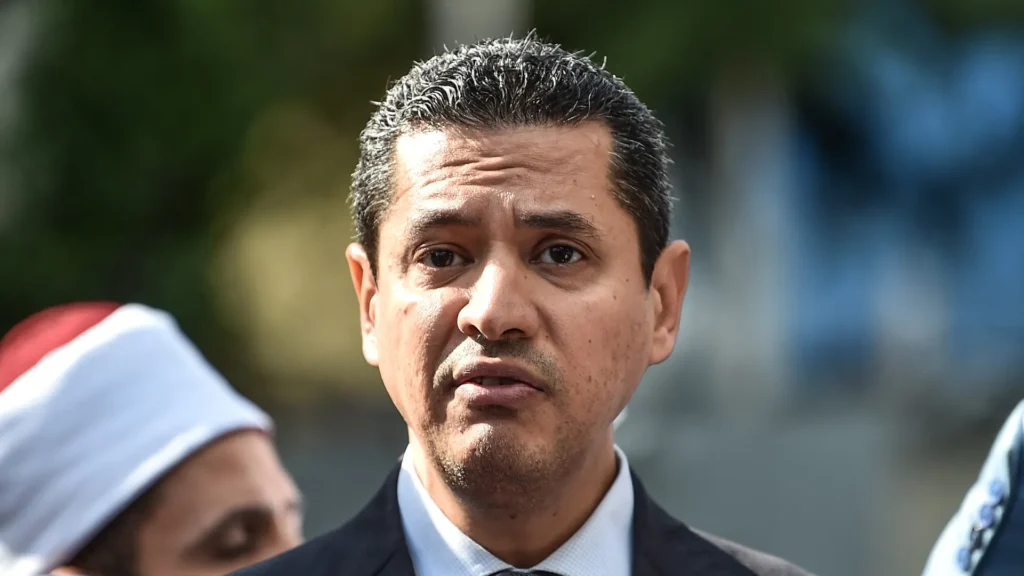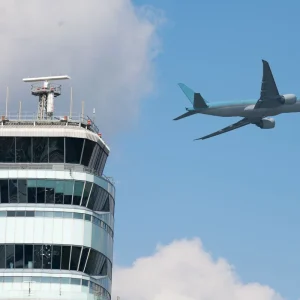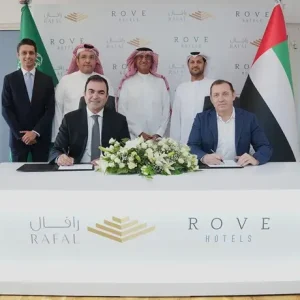In a significant development in international law and diplomacy, Lebanon has approved the extradition of Egyptian activist and political figure Yasser al-Qaradawi to the UAE. The decision comes after months of deliberations surrounding al-Qaradawi’s legal status and the nature of the charges against him. The extradition is seen as a key moment in strengthening the UAE’s pursuit of justice and accountability in cases involving individuals suspected of promoting activities against the country’s national interests.
Al-Qaradawi, who has been an outspoken critic of various Arab governments and a vocal figure in the Egyptian opposition, is wanted in the UAE for his alleged involvement in activities deemed to threaten national security. The approval by Lebanese authorities marks a major victory for the UAE’s legal efforts to pursue accountability for those accused of destabilizing the region.
The Extradition Process: A Complex Legal Journey
The extradition of Yasser al-Qaradawi from Lebanon to the UAE marks the culmination of a complex legal journey that involved various international law considerations, diplomatic negotiations, and legal procedures. Extradition treaties between nations often come with intricate protocols, ensuring that the process adheres to the legal frameworks and protections of each country involved.

Lebanon’s decision to approve the extradition is a testament to the ongoing cooperation between Lebanese and UAE authorities in criminal matters. However, the case was not without controversy, as al-Qaradawi’s supporters argued that his extradition could result in unfair treatment or persecution, citing concerns over human rights and political motivations behind the charges against him.
In response, Lebanese officials maintained that the decision was made in accordance with Lebanese law and that al-Qaradawi’s legal rights would be upheld throughout the extradition process. They also emphasized that the UAE’s request for extradition was based on legitimate grounds related to national security concerns, and the matter had undergone thorough legal scrutiny.

Al-Qaradawi’s Controversial Background
Yasser al-Qaradawi is a prominent Egyptian activist known for his vocal opposition to the governments of Egypt and the UAE, among other Arab states. He has a history of participating in political movements that have been critical of the ruling regimes in several countries, and his activism has made him a divisive figure in the region.
Al-Qaradawi’s critics argue that he has engaged in activities that could incite unrest and instability, particularly through his outspoken rhetoric and advocacy for political change. In particular, his involvement in protests and opposition activities following the Egyptian Revolution of 2011 raised alarms among some governments in the UAE and across the Arab world, who viewed his actions as part of a broader movement aimed at undermining state sovereignty and stability.
The UAE has long been committed to maintaining national security and promoting stability in the Gulf region. Al-Qaradawi’s activities have been deemed by UAE authorities as contributing to efforts that challenge the country’s political landscape. As a result, his extradition was pursued to ensure that he faces justice in relation to these alleged activities.
Lebanon’s Role in Regional Cooperation
Lebanon’s decision to approve the extradition is an important moment in the broader context of regional cooperation in legal and security matters. Lebanon and the UAE have historically maintained diplomatic relations, and this decision highlights the growing collaboration between the two countries in handling criminal cases, particularly those with international implications.
Extradition agreements between nations are critical for ensuring that individuals who commit crimes do not escape justice by fleeing to other jurisdictions. Lebanon’s approval of the extradition request is a clear signal of its willingness to cooperate with the UAE in combating regional threats to security and stability.
Moreover, Lebanon’s decision to approve the extradition may also signal a broader trend of increasing legal and diplomatic collaboration across the Middle East. As political and security dynamics evolve in the region, countries are recognizing the importance of working together to address shared challenges, including combating terrorism, extremism, and political violence.
Implications for Human Rights and Legal Precedents
While the decision to approve al-Qaradawi’s extradition has been celebrated by some, it has also raised concerns among human rights organizations and political observers. Critics argue that the extradition could set a concerning precedent for the treatment of political activists and individuals involved in dissent.
Human rights groups have expressed fears that al-Qaradawi could face an unfair trial in the UAE, particularly given the political nature of the charges against him. These concerns have been amplified by the ongoing debates surrounding the UAE’s human rights record and its approach to political activism.
However, the UAE government has repeatedly stated its commitment to ensuring that all legal procedures are followed and that al-Qaradawi’s case will be handled in accordance with international human rights standards. UAE authorities have emphasized their dedication to providing a fair trial and ensuring that the legal rights of all individuals, regardless of their political background, are respected.
For Lebanon, the decision to approve the extradition highlights the delicate balance that countries must strike between upholding their legal obligations and protecting the rights of individuals. Lebanon’s legal system will be closely scrutinized in the coming months as the extradition process moves forward, with observers paying attention to how it navigates the complexities of international law, human rights concerns, and political considerations.
Strengthening UAE’s Pursuit of Accountability
The approval of al-Qaradawi’s extradition is a key moment for the UAE as it strengthens its pursuit of justice and accountability in cases involving individuals who are believed to have posed a threat to national security. The case underscores the UAE’s firm stance on maintaining stability in the region, as well as its efforts to tackle terrorism and political extremism.
The UAE has long been recognized for its robust legal framework, and its pursuit of extradition for individuals who are believed to be involved in destabilizing activities demonstrates the country’s commitment to ensuring that justice is served. Al-Qaradawi’s extradition is a clear example of the UAE’s dedication to upholding its legal system and safeguarding its interests in the face of external threats.
In addition, the extradition sets an important precedent for future cases of international extradition, demonstrating the UAE’s determination to enforce the rule of law and hold individuals accountable for their actions, regardless of their political status or affiliations.
Looking Forward: Regional Legal and Diplomatic Cooperation
The approval of Yasser al-Qaradawi’s extradition to the UAE is not only a significant legal victory but also an important moment for regional cooperation in the Middle East. As countries in the region continue to confront complex political and security challenges, the need for effective legal cooperation will only grow.
The case also highlights the growing importance of international law and diplomacy in addressing cross-border issues related to terrorism, political instability, and criminal activity. Lebanon’s role in approving the extradition signals a broader commitment to regional collaboration and the importance of working together to address shared challenges.
As the extradition process unfolds, it will undoubtedly serve as a key point of reference for future legal cases in the region. The handling of al-Qaradawi’s extradition will be closely watched by both regional and international observers, with the outcome having the potential to influence future diplomatic relations and the approach to extradition matters in the Middle East.
In conclusion, the extradition of Yasser al-Qaradawi to the UAE marks a significant milestone in regional legal cooperation and the pursuit of justice. While the case raises important questions about human rights and political freedoms, it also underscores the UAE’s commitment to maintaining national security and upholding the rule of law.
Do follow Uae stories for more Updates
Paralympic Stars to Descend on Dubai for Season-Opening Fazza Para Athletics GP














